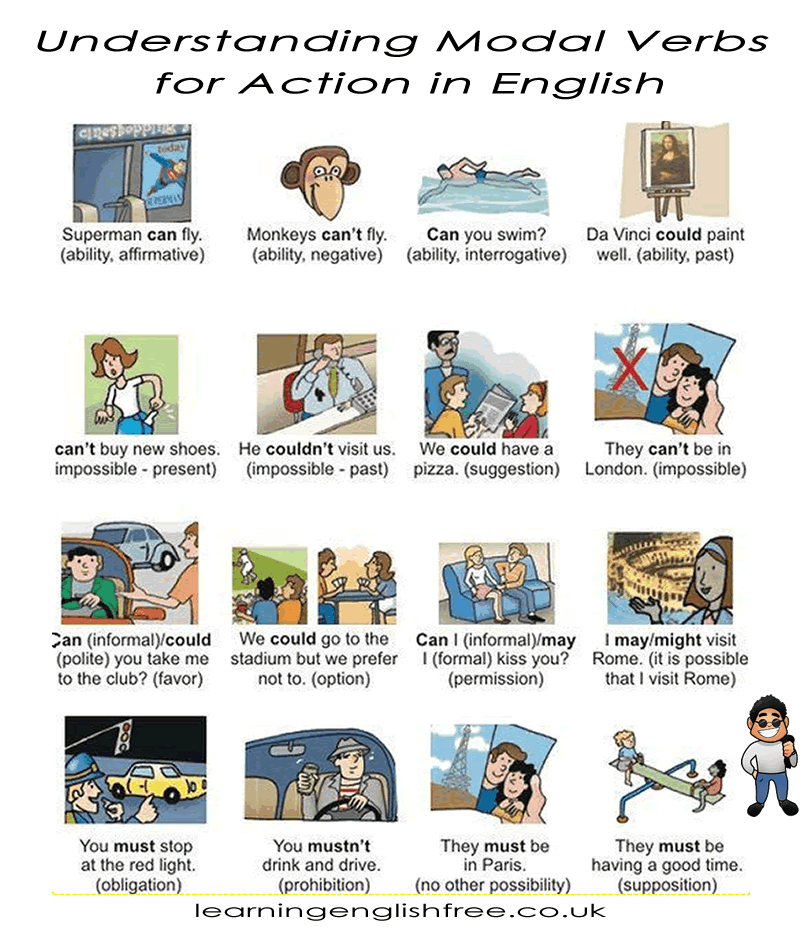
Mastering Modal Verbs for Action: Ability, Possibility, and Obligation
Modal verbs are essential tools in English, helping us express abilities, possibilities, obligations, and more. This lesson focuses on how modal verbs like 'can', 'could', 'may', 'might', and 'must' are used to convey different nuances in actions. From asking for permission to making suggestions, understanding these modals is key to effective communication in English.
-
Expressing Ability:
- Can (Affirmative): "Superman can fly."
- Can't (Negative): "Monkeys can't fly."
- Can (Interrogative): "Can you swim?"
- Could (Past Ability): "Da Vinci could paint well."
-
Expressing Impossibility:
- Can't (Present Impossible): "I can't buy new shoes."
- Couldn't (Past Impossible): "He couldn't visit us."
- Can't (General Impossible): "They can't be in London."
-
Making Suggestions:
- Could (Suggestion): "We could have a pizza."
-
Asking for a Favor:
- Can/Could (Favor): "Can/Could you take me to the club?"
-
Expressing Options:
- Could (Option): "We could go to the stadium but prefer not to."
-
Asking for Permission:
- Can/May (Informal/Formal Permission): "Can/May I kiss you?"
-
Expressing Possibility:
- May/Might (Possibility): "I may/might visit Rome."
-
Conveying Obligation:
- Must (Obligation): "You must stop at the red light."
-
Expressing Prohibition:
- Mustn't (Prohibition): "You mustn't drink and drive."
-
Making Suppositions:
- Must (Supposition): "They must be in Paris."
- Must be (Supposition about an Action): "They must be having a good time."
Expanding Communication with Modal Verbs
Understanding modal verbs and their uses in expressing actions, abilities, and possibilities is crucial for nuanced and accurate English communication. This lesson has provided clear examples and explanations to help you confidently use these modal verbs in various contexts.
